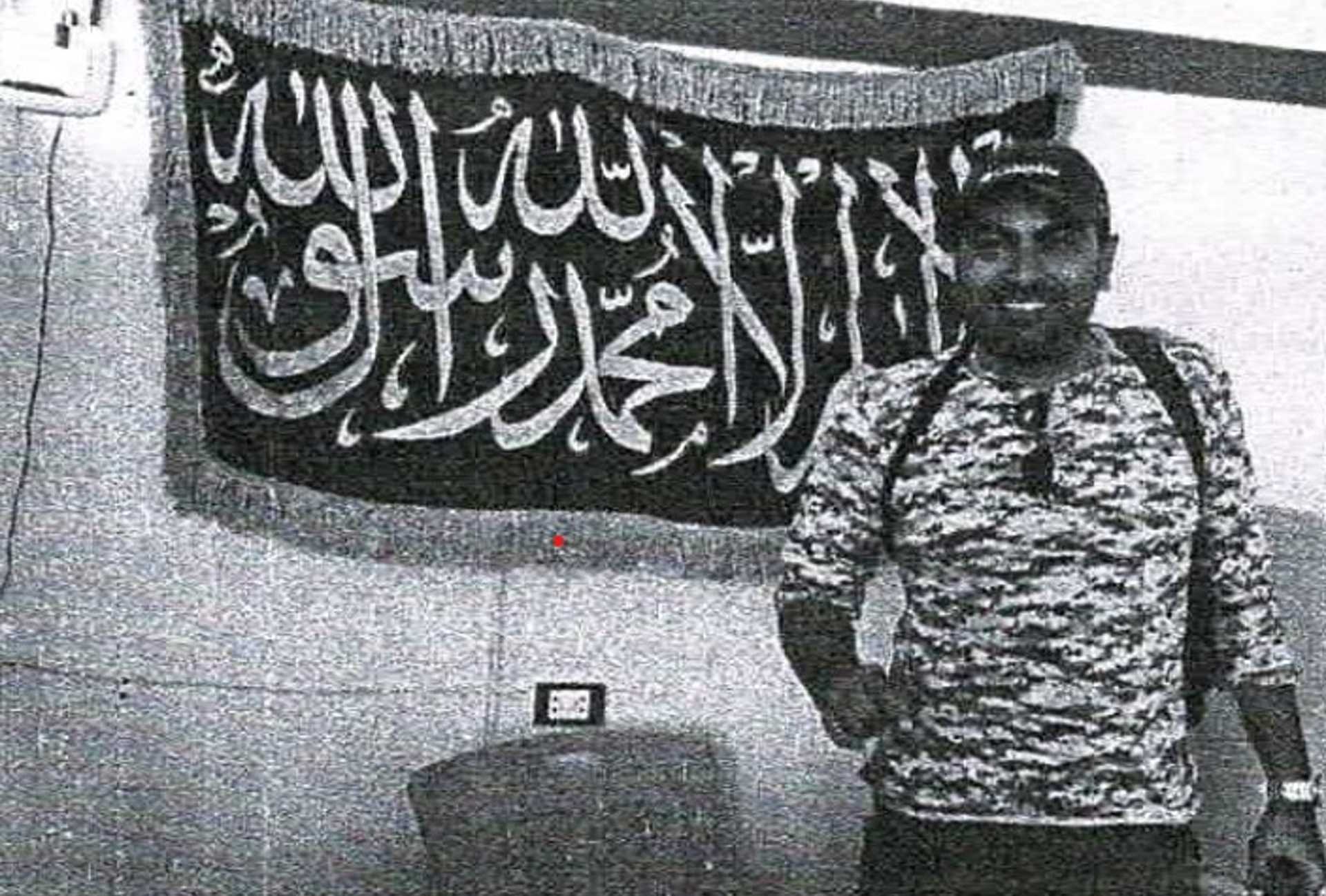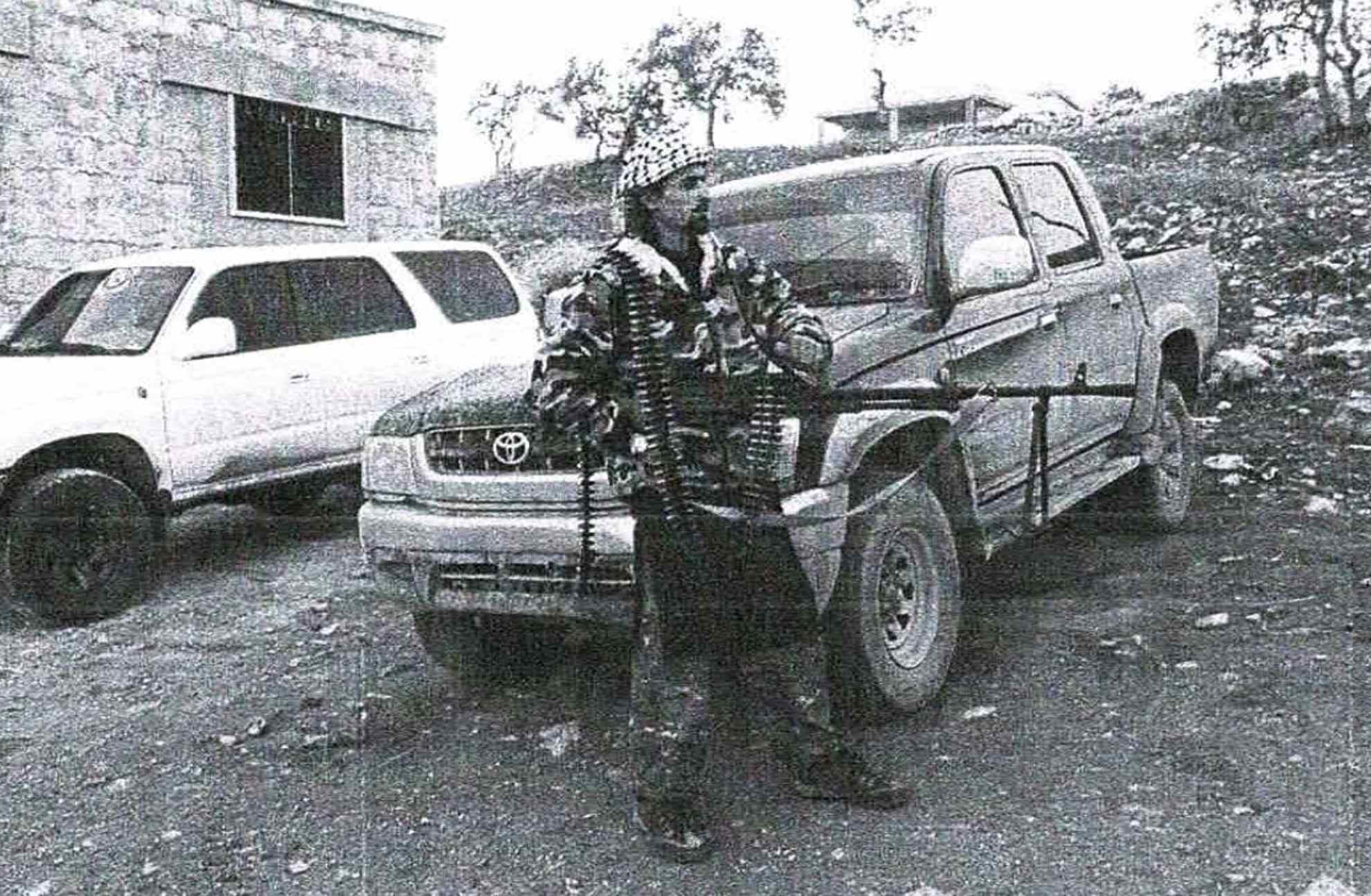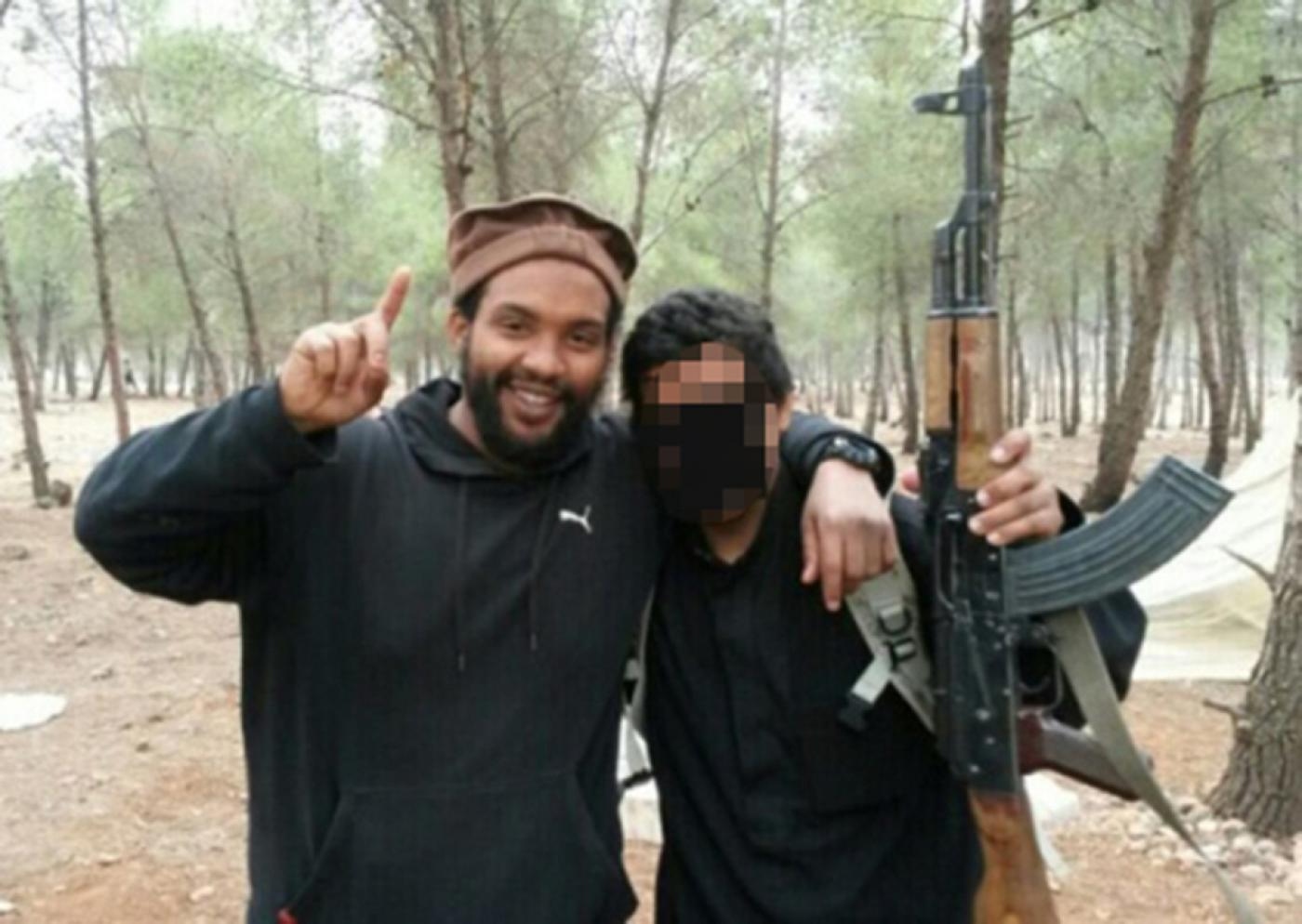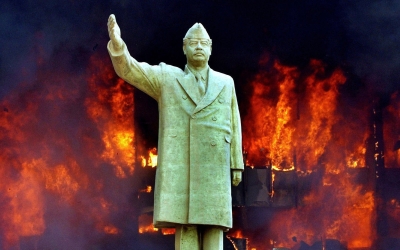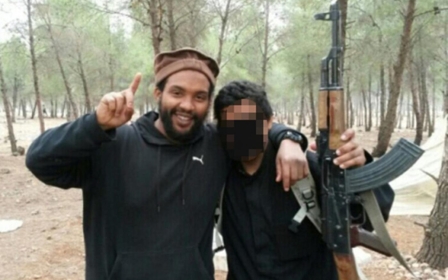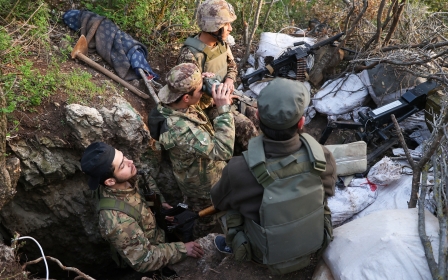EXCLUSIVE: FBI rented Istanbul villa where 'Islamic State Beatle' Aine Davis was caught
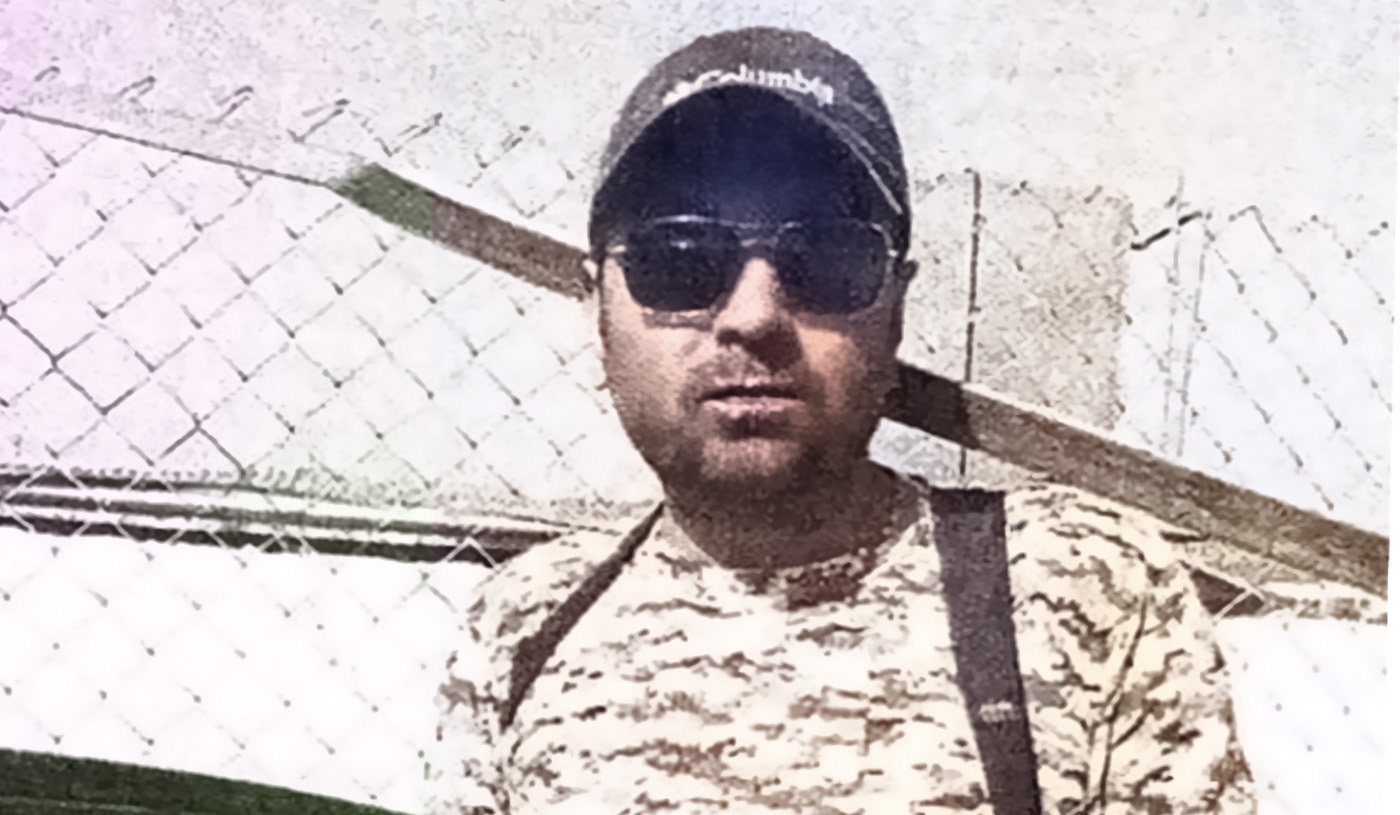
The FBI rented a luxury Istanbul villa used as a safehouse by an alleged member of a notorious Islamic State (IS) execution cell in 2015, Middle East Eye can reveal.
In an apparent sting operation, the US domestic intelligence agency then tipped off Turkish authorities about a purported IS plot to attack the city, prompting counter-terrorism police to raid the villa and arrest six men including Aine Davis, a British man accused of being one of the so-called "Beatles" group.
But Turkish prosecutors eventually admitted that no evidence of a plot - other than a foreign intelligence report which they dismissed - existed. Davis and two other men were nevertheless eventually convicted of membership of IS.
Now, an MEE investigation has uncovered extraordinary new details about the case.
MEE has learnt that a veteran FBI undercover operative involved in the operation was himself later jailed in the US, after revealing details of his role in entrapment operations - including heroin smuggling - and threatening his former bosses following his dismissal from the bureau.
New MEE newsletter: Jerusalem Dispatch
Sign up to get the latest insights and analysis on Israel-Palestine, alongside Turkey Unpacked and other MEE newsletters
The operative, Kamran Faridi, paid the rent and signed a tenancy agreement for the Istanbul property in the seafront suburb of Silivri, where Davis was captured in a raid by Turkish counter-terrorism police.
At the time, Turkish officials said they had disrupted preparations for a major IS attack in Istanbul. The raid, on 12 November 2015, took place just a day before IS gunmen and bombers killed 130 people in a series of co-ordinated attacks at the Bataclan theatre, Stade de France and other locations across Paris.
But court papers seen by MEE reveal that Turkish prosecutors could find no evidence of any such plot and said the raid had been prompted by a tip-off about a possible attack - from the FBI.
“Sufficient evidence could not be obtained to file a public lawsuit… other than the intelligence report of a foreign country, which does not have the quality of evidence,” prosecutors said in a note dated April 2016, which summarised the findings of an investigation into the six men arrested in the raid.
Davis and two other men detained at the villa were convicted and jailed in Turkey in May 2017 on a lesser charge of being members of IS. All three men denied that charge.
Three other men - two British nationals and one British-Turkish dual national - arrested in the raid were released due to the lack of evidence.
It is unclear whether any Turkish officials were aware of Faridi's work for the FBI at the time of the November 2015 raid.
A source familiar with the issue told MEE the FBI approached Turkish officials in February 2016 to propose that Faridi could work undercover for Turkish intelligence. But Turkish officials rejected the offer because they said Faridi had already been exposed.
The informant
Faridi, 58, is originally from Pakistan. According to details of his life first reported by Pakistani media, he “started hustling on the tough streets of Karachi” before migrating to the US in 1991.
He was recruited as an informant by the FBI in the mid-90s to infiltrate an Urdu-speaking criminal gang in Atlanta, Georgia.
In the wake of the 9/11 attacks, Faridi was assigned to the FBI’s Joint Terrorism Task Force, travelling to countries including Pakistan, Saudi Arabia, Afghanistan, the United Arab Emirates and Sudan.
He is said to have infiltrated al-Qaeda networks around the world. Sources have told MEE he was also “loaned out” to other western intelligence agencies.
But Faridi was jailed in the United States in 2021 over death threats sent to his former superiors, following his dismissal from the FBI in February 2020.
Faridi is understood to have been fired in February 2020 after falling out with his handlers over an entrapment operation targeting a South Asian crime gang, in which FBI informants facilitated a shipment of heroin from Pakistan to the US and laundered hundreds of thousands of dollars linked to drugs trafficking.
The Palestinian
The luxury villa in Istanbul, which was rented by Faridi in August 2015, was primarily occupied by the family of a Palestinian refugee, Alwalid Khalid Alagha, the son of an influential jihadist scholar who has been linked to al-Qaeda.
Alagha grew up in Pakistan, to where his father, Abu al-Walid al-Filistini, travelled in the 1980s to join Arabs fighting against Soviet forces in Afghanistan.
He lived in the villa with his two wives, nine sisters, his mother and four children. During his trial, Alagha told the court his family had come to Turkey as refugees about a year and a half earlier.
He said Faridi was known as a “benevolent person” who had helped him find a suitable home for his large family.
Laptops and phones confiscated in the raid included photos of Alagha carrying weapons and other material linking him to Syrian militant groups. Alagha said he had travelled to Turkey directly from Pakistan.
Phone records showed that Alagha had been in contact with both Aine Davis and Faridi in the days leading up to the raid.
Faridi had left Turkey for New York via Amsterdam on 3 November, a little over a week before the raid on the villa.
Links to Nusra
Alagha was eventually convicted alongside Davis in May 2017 of being a member of IS - a charge he strongly denied. Both men, and a Jordanian man, Mohammad Ahmad Hamdan Alkhalaileh, who was also arrested at the villa, were sentenced to seven-and-a-half years in prison.
Alagha and Alkhalaileh have since been released. MEE reported exclusively on Thursday that Davis, who is currently being held in Ankara's Sincan prison, is now also scheduled to be released and deported to the UK on 9 July.
In transcripts of court hearings seen by MEE, Alagha’s lawyer questioned evidence linking Faridi to Jabhat al-Nusra, which prosecutors attributed to "American or British intelligence".
The Syrian militant group, which was then affiliated to al-Qaeda, subsequently evolved into Hay’at Tahrir al-Sham (HTS). It currently controls much of Idlib province in northwestern Syria.
Alagha’s lawyer said it was illogical to accuse him of membership of IS because IS and Nusra had fought each other - though Alagha also denied any links to Nusra.
Davis denied being a member of IS. He said he had gone to opposition-held Syria to do aid work earlier in the country’s civil war but had mostly been living in Gaziantep in Turkey.
During the trial, prosecutors cited intercepted phone messages, which they said showed Davis had been in contact with known IS operatives to request help crossing the border into Turkey to attend an “important meeting” and to “engage in provocative and sensational actions”.
Evidence against Davis also included photos of him holding a gun and posing with men who appeared to be armed militants, British media reports linking him to the "Beatles" cell, and an Interpol red notice for his arrest posted by British police.
The red notice said material seized from his wife’s phone in the UK included photos of Davis with “guns, an Islamic flag, a dead martyr and other individuals who are also armed”.
It said he had referred in messages to his wife to “being ‘on point’, believed to be a reference to assuming the most advanced position in a combat military formation advancing through hostile territory”.
‘Stupid photos’
Davis said he had gone to Istanbul to acquire a fake Syrian passport because he had learned of the red notice for his arrest and did not want to return to the UK.
He dismissed the images showing him with militants as “stupid photos” that he had posed for in Idlib in 2013 when the area was controlled by the Free Syrian Army, which was supported by the West.
“Everyone was having photos taken with armed individuals like that in order to show off,” he told the court.
Davis denied being a member of the "Beatles" cell. He said he believed he had been linked to the group because he prayed in the same London mosque as Mohammed Emwazi, who by then had been identified in the media as the masked militant dubbed "Jihadi John" responsible for a series of beheadings of western hostages broadcast on IS media channels.
Emwazi was killed in a US drone strike in Raqqa on the same day Davis was captured in Istanbul.
Two other British nationals linked to the "Beatles" cell were later captured by US-backed Kurdish forces and handed over into US custody.
Alexanda Kotey was sentenced to life in prison in April after pleading guilty to criminal charges relating to the abduction, torture and beheading of hostages in Syria. El Shafee Elsheikh was found guilty of the same charges but is yet to be sentenced.
Davis's court-appointed lawyer in Istanbul declined to comment. Alagha declined to speak to MEE.
Karachi heroin
Faridi was sentenced to seven years in prison in November last year for threats made against his FBI superiors following his dismissal in February 2020.
He said he was angry because the bureau owed him thousands of dollars in unpaid expenses, according to reports of the case.
But Faridi had also fallen out with his bosses over an entrapment operation targeting Jabir Motiwala, a Pakistani businessman facing extradition to the US from the UK in relation to the drugs trafficking case.
The FBI accused Motiwala of being a senior member of D-Company, an international crime gang based in India, Pakistan and the UAE, with links to militant groups.
Motiwala, who had been imprisoned since his arrest in London in August 2018, maintained his innocence.
He argued he was a victim of entrapment after it emerged FBI informants had “attempted to facilitate criminal dealings” with D-Company and were involved in organising a shipment of heroin from Karachi to New York, which Motiwala is alleged to have profited from.
According to US government legal papers seen by MEE, the plot involved an FBI informant referred to as CS-1, who was identified as “a United States citizen, born in Pakistan, who has posed as a representative of La Cosa Nostra [the Mafia] and Russian Organised Crime entities based in New York”, and who met Motiwala in Pakistan and the US in 2011 and 2012.
As part of an FBI investigation, CS-1 laundered approximately $1.4m of purported narcotics proceeds and in 2014 facilitated a shipment of 4kg of heroin from Karachi.
The heroin never reached the US, however. According to the US government papers, it was seized en route in Toronto by Canadian police “working in conjunction with the FBI”.
‘Extraordinary rendition’
After being dismissed by the FBI, Faridi is understood to have given a statement to lawyers in London representing Jabir Motiwala, telling them his superiors ordered him to fabricate evidence in the case.
He then flew to London to give evidence in Motiwala’s High Court appeal hearing in March 2020.
But Faridi was detained on arrival at Heathrow Airport and returned to the US without extradition proceedings. The circumstances were described as an "extraordinary rendition" by one person familiar with the case.
Motiwala’s lawyers nonetheless presented Faridi’s statement at the High Court hearing. The US Department of Justice subsequently dropped charges against Motiwala and withdrew its request for his extradition. Motiwala was released and returned home to Karachi in April 2021.
In a statement, Motiwala’s lawyers, ABV Solicitors, said the US Department of Justice had provided no explanation for dropping the charges against their client.
They said: “It is strongly suspected that the decision was due to the admission to ABV Solicitors by an FBI informant Kamran Faridi, of being asked by the FBI to frame and fabricate evidence against Jabir Siddiq [Motiwala].
“Kamran Faridi was prevented from providing this evidence in the UK extradition proceedings by the FBI. The High Court was informed of these bizarre circumstances. ABV Solicitors argued that this amounted to an abuse of the court process as a form of prosecutorial misconduct.”
Middle East Eye sought access to legal documents relating to the Motiwala extradition hearing at the High Court in London.
Justice Robert Jay ruled that MEE should be provided with the documents subject to the exclusion of “any material that is private, sensitive or whose disclosure would harm the public interest".
The redacted documents refer to an argument made by Motiwala's lawyers of “abuse of due process” based upon new evidence involving “a person claiming to be the principal prosecution witness against the Appellant”. MEE understands this person to be Faridi.
MEE sought access to documents relating to Faridi’s case at the New York Southern District Court but was told the case files were sealed.
Faridi is understood to be seeking to appeal his conviction but now faces further charges in the US for talking to journalists about his work for the FBI. MEE did not talk to Faridi in investigating this story and could not reach him for comment.
An FBI spokesperson told MEE: “The FBI has no comment.”
Ragip Soylu in Ankara and Azad Essa in New York contributed reporting to this story.
Middle East Eye delivers independent and unrivalled coverage and analysis of the Middle East, North Africa and beyond. To learn more about republishing this content and the associated fees, please fill out this form. More about MEE can be found here.


